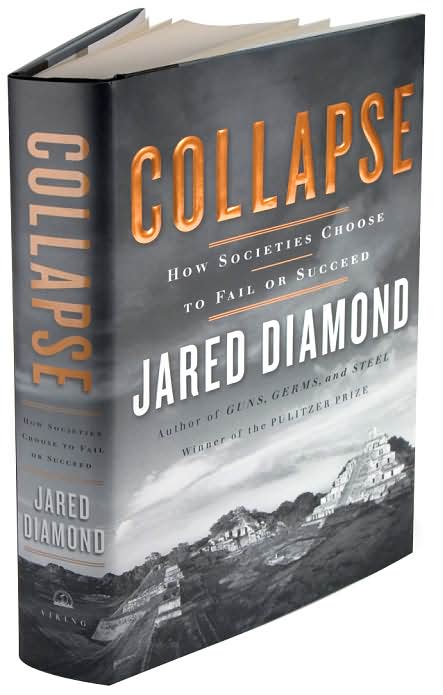 Jared
JaredDiamond has become one of the nation's foremost public intellectuals. He is probably one of the few people living today who can decide to write "a short history about everyone for the last 13,000 years" and actually pull it off. So when 69-year-old Jared Diamond decides to spend several years of his life writing a massive treatise on the environmental impact of human societies, it is definitely a good idea to pay attention to what he has to say. In this work, Diamond moves closer to the Social Sciences than he ever has before, to the point where he makes some (delicately worded) critiques of the Bush administrations environmental policies. But diamond is, first and foremost, a natural scientist. Interestingly, his science background results in what I think is a very materialist political philosophy. This manifested itself in Collapse's section on the Rwandan Genocide. On the surface, this terrible event resulted from the Hutu's longstanding hatred for the minority Tutsi. But then Diamond brings in a conundrum: an ethnically homogeneous Hutu village where mass killings nevertheless took place. (Note: In this area Diamond is mainly relating the research of other scholars, who he credits in the book) The real culprit in Rwanda? Overpopulation. Diamond shows, quite convincingly, how the increasing population density led to ever smaller plots of land for the farmers of Rwanda, how land became an object of tremendous conflict. This in turn exacerbated strife between those with less (often Hutu) and those with more. (Often Tutsi) Ludicrous, I thought. What about The Netherlands? What about Singapore? I thought Diamond's concern about global population was alarmist, a throwback to concerns about expanding third-world populations a few decades ago. But, in the end, Jared Diamond struck an optimistic tone. He related the story of his visit to the Netherlands, where he was told about a storm surge in the 1950's. It was devastating. The floodwaters killed over 2,000 people of all walks of life. The citizens of the Netherlands realized that they had to work together in order to survive, because the threat of oblivion hangs over all of the citizens of The Netherlands, so matter how rich or powerful they may be. It's a piece of wisdom our own leaders should absorb. For while the powerful do not care when the Lower Ninth Ward floods, they may realize the threat that looms over all civilizations if the waters from the East River enter the UN Security Council chamber.

1 comment:
A magnificently potent message. I had considered reading Collapse, but had heard it did not surpass Guns, Germs, and Steel, which I have yet to finish. Of course, the benefits of social cooperation should never be doubted. Margaret Thatcher revealed her myopia with her statement that "there is no such thing as society". Try telling that to the Home Secretary.
Post a Comment